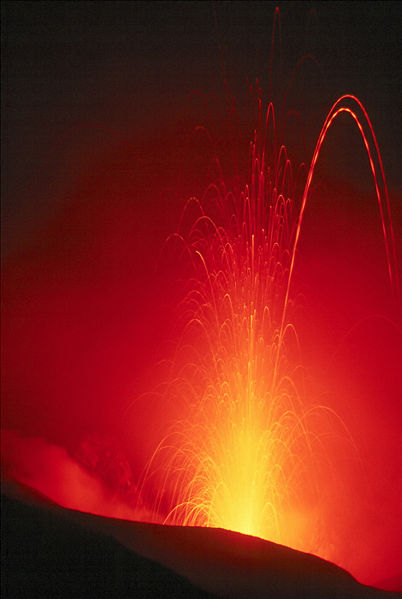They say that you can hear the sound of the sea in a shell held close to your ear. Sadly that's a myth, but the sound of the sea can certainly be heard by listening to a volcano where it can be used to predict an eruption, say French researchers.
 Writing in the journal Nature Geoscience, Grenoble University's Florent Brenguier and colleagues have found that when waves hit a beach they produce low frequency seismic shock waves which travel long distances through the Earth's crust. But if they pass through the magma chamber of a volcano that is about to become active the waves change in a highly characteristic way, warning researchers that an eruption is imminent. The team used the technique to correctly predict, up to ten days in advance, the 2006 and 2007 eruptions of the Piton de la Fornaise volcano on the island of Reunion in the Indian Ocean.
Writing in the journal Nature Geoscience, Grenoble University's Florent Brenguier and colleagues have found that when waves hit a beach they produce low frequency seismic shock waves which travel long distances through the Earth's crust. But if they pass through the magma chamber of a volcano that is about to become active the waves change in a highly characteristic way, warning researchers that an eruption is imminent. The team used the technique to correctly predict, up to ten days in advance, the 2006 and 2007 eruptions of the Piton de la Fornaise volcano on the island of Reunion in the Indian Ocean.
According to Brenguier, an array of 20 sensors around the volcano is sufficient to give a detailed picture of what is happening below ground at any depth. But is the research tied to the ocean? No, says Brenguier; other sources of vibration including natural seismic sources like the wind pummelling the ground are equally effective. Traffic noise could also be used, but its higher frequency means that it tends to be less penetrating than waves from the sea.
- Previous No pain, no gain
- Next Organ Transplants without Rejection









Comments
Add a comment